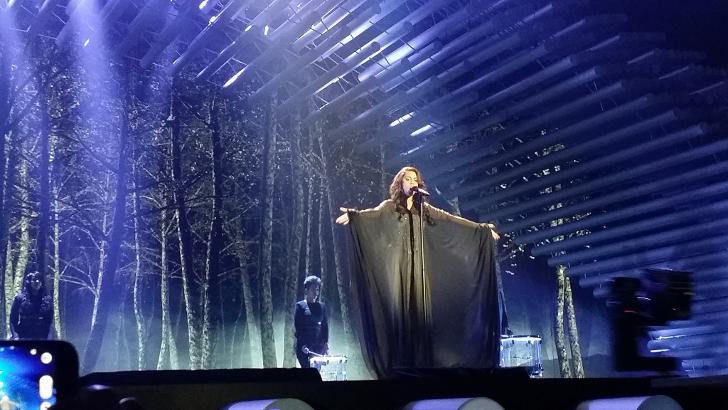The history of the Eurovision Song Contest began in the 1950s. The members of the European Broadcasting Union (EBU) came up with the idea of creating a spectacular television program that would contribute to the cultural unification of Europe torn apart by the Second World War. The new contest was based upon the existing Sanremo Music Festival (Festival della canzone italiana di Sanremo) in Italy.
The new contest was also seen as a technological experiment in live television, as it was supposed to be translated simultaneously to all countries of the EBU. Its main goals were to popularize television as well as to contribute to the emergence of new and original pop songs on the European music scene.
The inaugural Eurovision Song Contest took place in Lugano, Switzerland in 1956. There were seven participants from different countries (the Netherlands, Switzerland, Belgium, Germany, France, Luxembourg and Italy) and each country submitted two songs. The first contest was won by Switzerland.
The contest has become extremely popular over the years. The constantly increasing number of participants led to numerous changes in the format. Eligible participants include Active Members of the EBU. Participating countries choose their representatives who have to participate in a qualification round (semi-final). The highest-placed songs from two semi-finals qualify for the grand final. The host country and the Big Five countries (France, Germany, Spain, Italy and the UK) qualify automatically.
According to the current rules and requirements, the artist representing a country doesn’t necessarily have to be the citizen of the said country. The songs may be performed in any language. While some countries prefer to perform in a national language, many of the songs are performed completely or partially in English. All songs must be completely original. Performers must sing live, entirely instrumental compositions are not allowed but a capella singing is.
The winners are determined by voting. The current voting system was introduced in 2016. It combines televoting and professional jury voting. First, the jury gives 1 up to 12 points to 12 entries. Then televotes are given the same way. The country with the highest combined number of points wins. The winning country hosts the contest next year, although it has the right to decline due to expense or lack of a suitable venue.
As of 2023, the countries with the highest number of wins are Ireland (seven wins), Sweden (seven wins), France, Luxembourg, the United Kingdom, and the Netherlands (five wins each).

Photo: Andrej Baden




